Islamic State group: Why is it attacking Turkey?
- Published
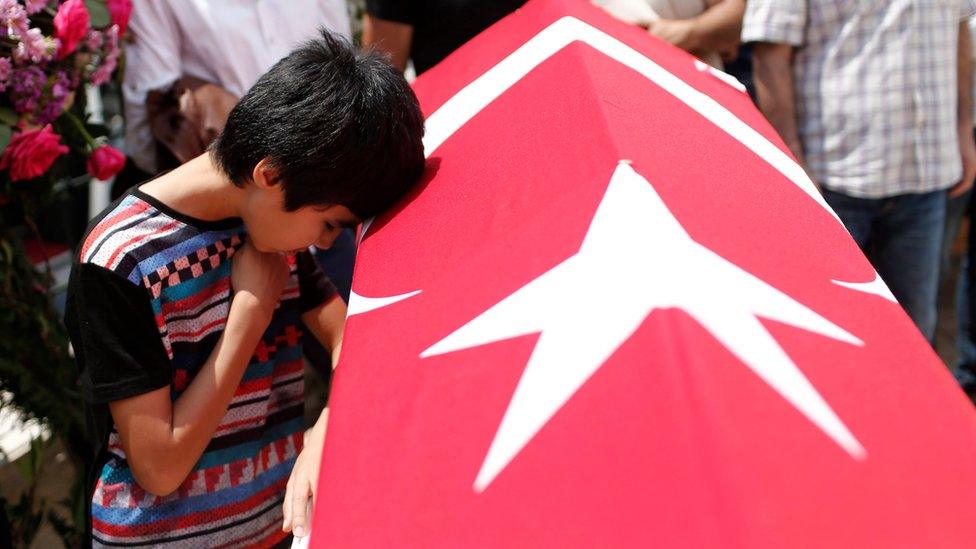
Funerals have been held for victims of the attack at Istanbul's Ataturk airport
Two days on from a brazen attack on Europe's third busiest airport, there has been no claim of responsibility.
But then the so-called Islamic State (IS) group has never claimed any of the attacks in Turkey that it is believed to have committed.
The Turkish government and the CIA both say the assault on Istanbul's Ataturk airport bears all the signs of the jihadist group.
Over the past year, Turkey has been gripped by a wave of bombings across the country.
Those claimed by Kurdish militants have tended to hit organs of the Turkish state - police vehicles or military buildings - with which the PKK is fighting a renewed conflict.
But a high-profile international target is more the style of IS.
CCTV footage inside the airport shows one of the attackers
In a recent message, a supposed spokesman for the group called for specific attacks during the Muslim holy month of Ramadan, which is now. And Tuesday - the day the airport was hit - marks exactly two years since IS declared its "caliphate".
It's conceivable that this was an anniversary show of strength: the jihadists may have lost Falluja but they're certainly still in business.
Six big IS attacks in Turkey in the space of 12 months. What on earth is happening to the once stable corner of the Middle East?
A little too late?
As ever in Turkey, the answer depends on which side of the deep political divide you find yourself.
For the diehard supporters of Recep Tayyip Erdogan, Turkey's polarising president, this is revenge for the country's fight against terrorism.
"[The West] left us alone in fighting Daesh that attacked Turkey," said Mr Erdogan last month, using another acronym for IS.
"None of those who said they're fighting Daesh have either made them suffer the losses or pay the price Turkey has done."
He and his government have even repeatedly suggested that IS and the PKK are working in cahoots to destabilise Turkey: a seemingly absurd suggestion, given the hatred between the two.
But for the arch critics of Turkey's president, the past 12 months show a litany of intelligence lapses and policy failures.
BBC reporter Mark Lowen reports from on board a plane stuck on the tarmac
Known IS cells in Turkey, notably in the southern city of Adiyaman, were left to plot successive attacks in a murky tea-house before striking in Diyarbakir last June and Ankara in October - attacks that killed more than 100 people.
"We have the list of possible suicide bombers in Turkey - but cannot arrest them until they act", said the then Prime Minister Ahmet Davutoglu.
And, goes the argument, it proves the widely-held view that Turkey was too slow to wake up to the threat of IS.
Many believe that some elements within Turkey's Islamist-leaning government stomached, or even fostered, jihadist groups in Syria that tallied with their beliefs, creating an environment in which IS could grow.
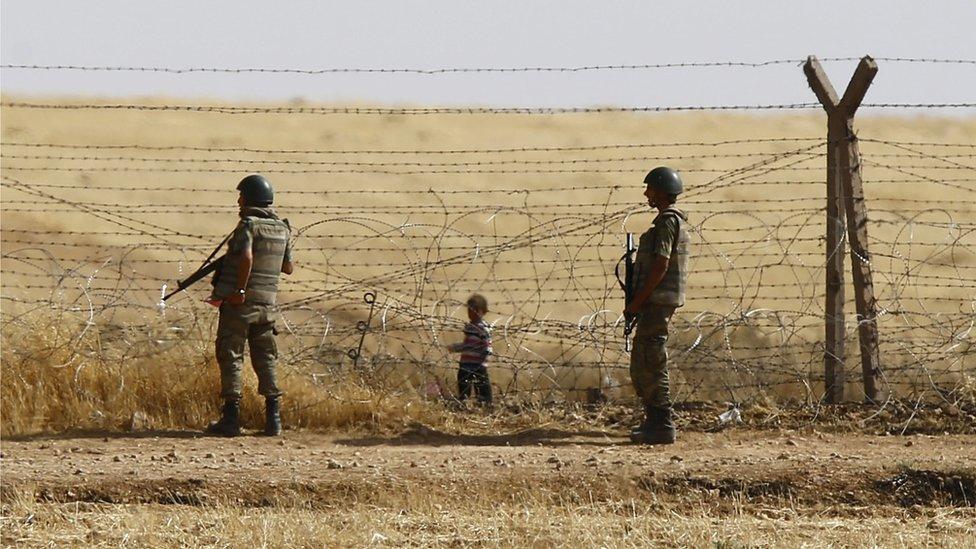
It is believed that many foreign fighters crossed into Syria taking advantage of Turkey's once porous border
For the first few years of the Syrian war, Turkey's border with Syria was somewhat porous, allowing jihadists and weapons to cross in both directions - until pressure from the US and others grew and Turkey tightened controls.
Ankara has always vehemently denied the allegations, claiming there is no proof of sinister cross-border movement and that the media and Western governments are attempting to besmirch Turkey while ignoring the fact that it has taken in almost three million Syrian refugees.
But what is clear is that as Turkey has become a more active part of the US-led coalition against Islamic State, it is considerably more vulnerable.
Any sympathies that the group thought it might have had in Turkey have been largely obliterated by successive attacks, making this country much more of a target.
Weakened, but still strong
Turkey's southern US airbase at Incirlik is used for nightly bombings of IS positions. Revenge is now a key reason why Turkey keeps getting hit.
And, as the attacks in Paris, Brussels and elsewhere have shown, IS remains a formidable force, albeit a depleted one.
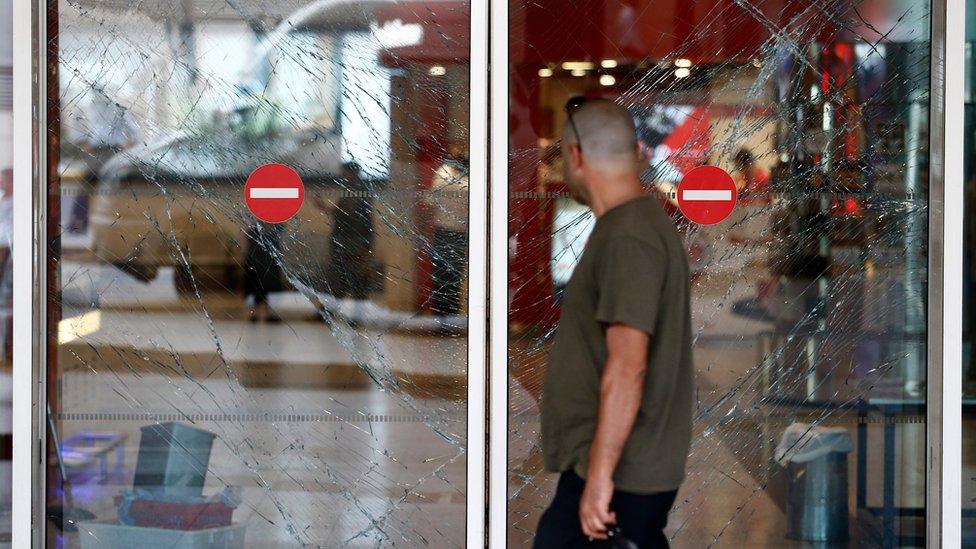
The attack at the airport is the latest in a series of bombings to have hit Turkey recently
Its militants have the ability to circumvent powerful governments with strong intelligence agencies. And in a country like Turkey, with a 500-mile-long (800km) border with Syria and 200 miles (320km) with Iraq, it has easier passage - and fertile ground.
Turkey is reeling from yet another devastating attack. Security across the country has been stepped up. But it's increasingly clear that the government is trying to close the stable door after the horse has bolted.
And the reality, for this nervous nation, is that more strikes will come.
- Published5 January 2017
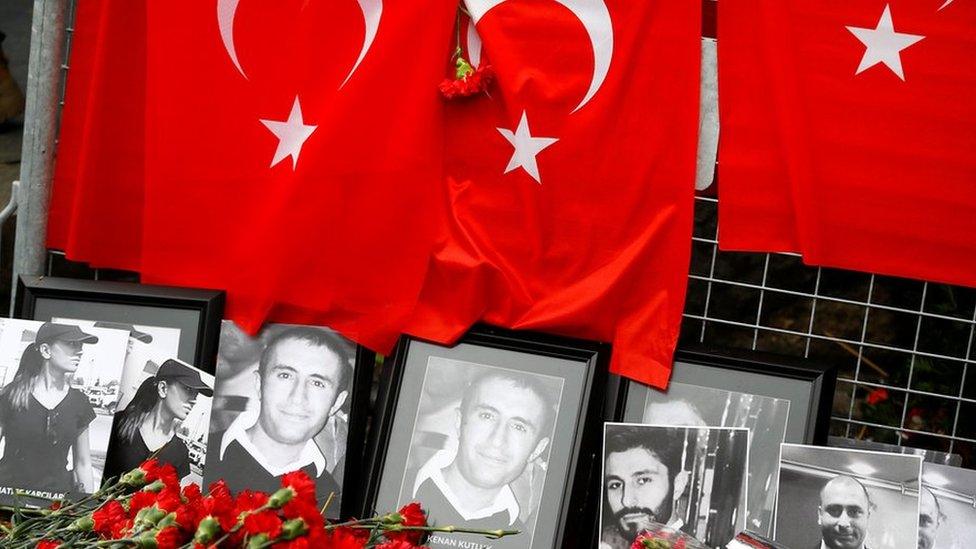
- Published14 March 2016
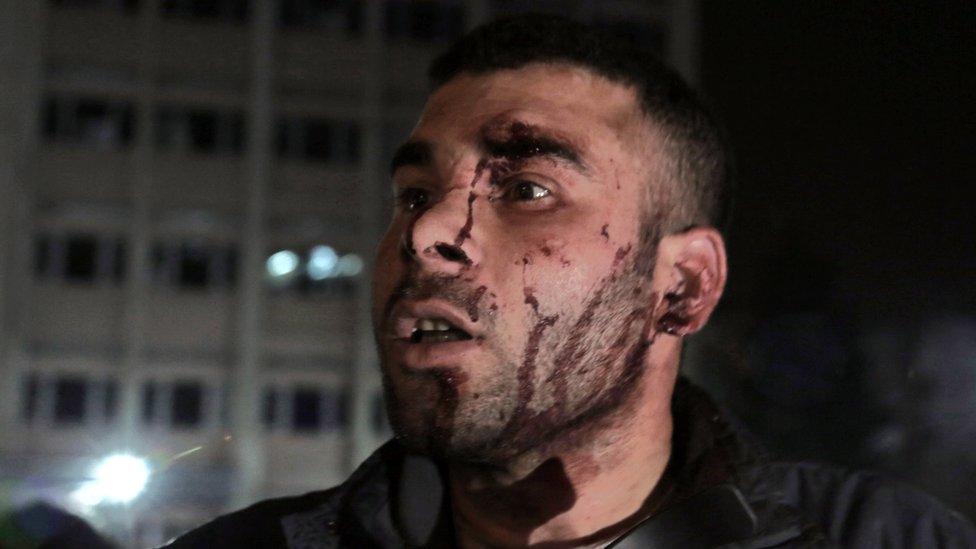
- Published17 October 2017
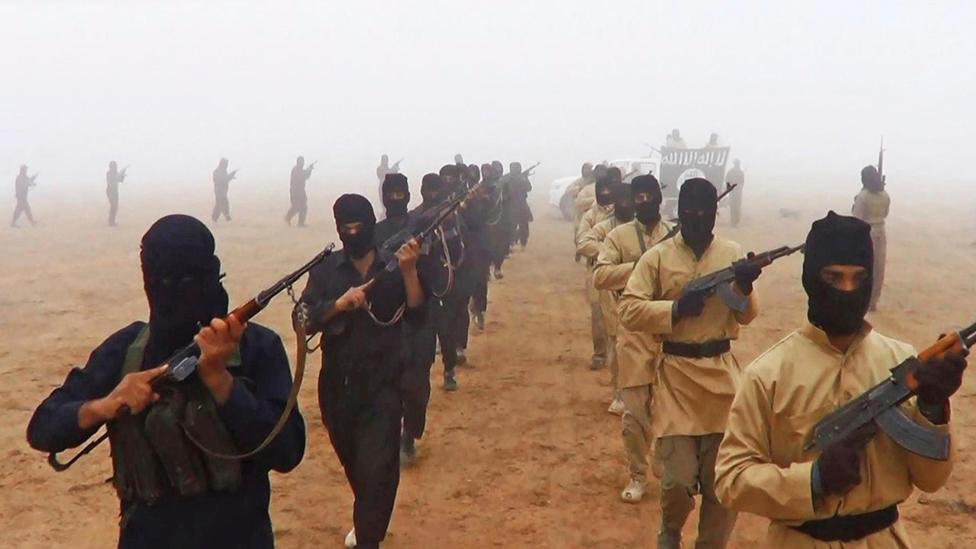
- Published22 August 2023
